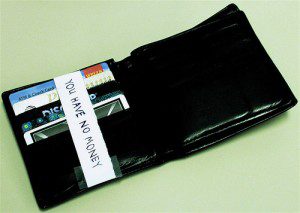With the end of the first quarter of 2010 behind us, now is a great time to review your budget.
When checking up on your budget, it is important to look over a specific amount of time for comparisons to actual expenses. Comparing expenses on a monthly basis can be a source of frustration as there are many fluctuations that occur throughout the year (holidays, vacation, etc.).
Therefore, it is important to measure your progress against a rolling year period. For example, if you have been using a budgeting tool for one year or longer, you would want to compare from February 1, 2009 to March 31, 2010. If you are just getting started, looking at smaller increments of time, like three or six months, can also be helpful.
No matter what your time frame is, here are a few tips to help streamline and update your budget:
- Budgeting software often has trouble correctly categorizing a few expenses. Take a quick look at your transactions and identify and correct those that are mislabeled. If you are using Mint.com, be sure to take advantage of their easy to read ‘trend’ section. You can see where you’ve spent money over specific categories in charts that allow you to drill down to the transaction level, helping to spot inaccurate transactions. If you don’t use budgeting software, compiling data from your receipts and statements will be a good way to get you started. Remember, you are trying to identify how to spend less than you earn.
- Revisit the items you have budgeted. Now that you have been tracking for a few months or longer, are your budgeted items realistic? Maybe some adjustments need to be made to common expenses like household utilities, food and dining, transportation costs (including gas and regular maintenance), and discretionary (misc. spending).
- It is common for your expenses to fluctuate over time and for some expenses to occur only during parts of the year. Some items, like car insurance, homeowner association dues, and professional fees may be paid quarterly or semi-annually, so be sure to include those expenses in your budget now.
- If you are spending more than your budgeted amount on a regular basis, take some time to plan out ways to reduce your spending. Little things like taking your lunch to work once or twice a week, making coffee at home, or planning errands around one trip can all add up over time.
- Have you had any lifestyle changes that should be reflected in your budget? A home purchase, renovation or new child can increase (or decrease) spending and should be accounted for. Adding new expenses to your budget while taking time to review your overall spending picture can help set you back on track.


